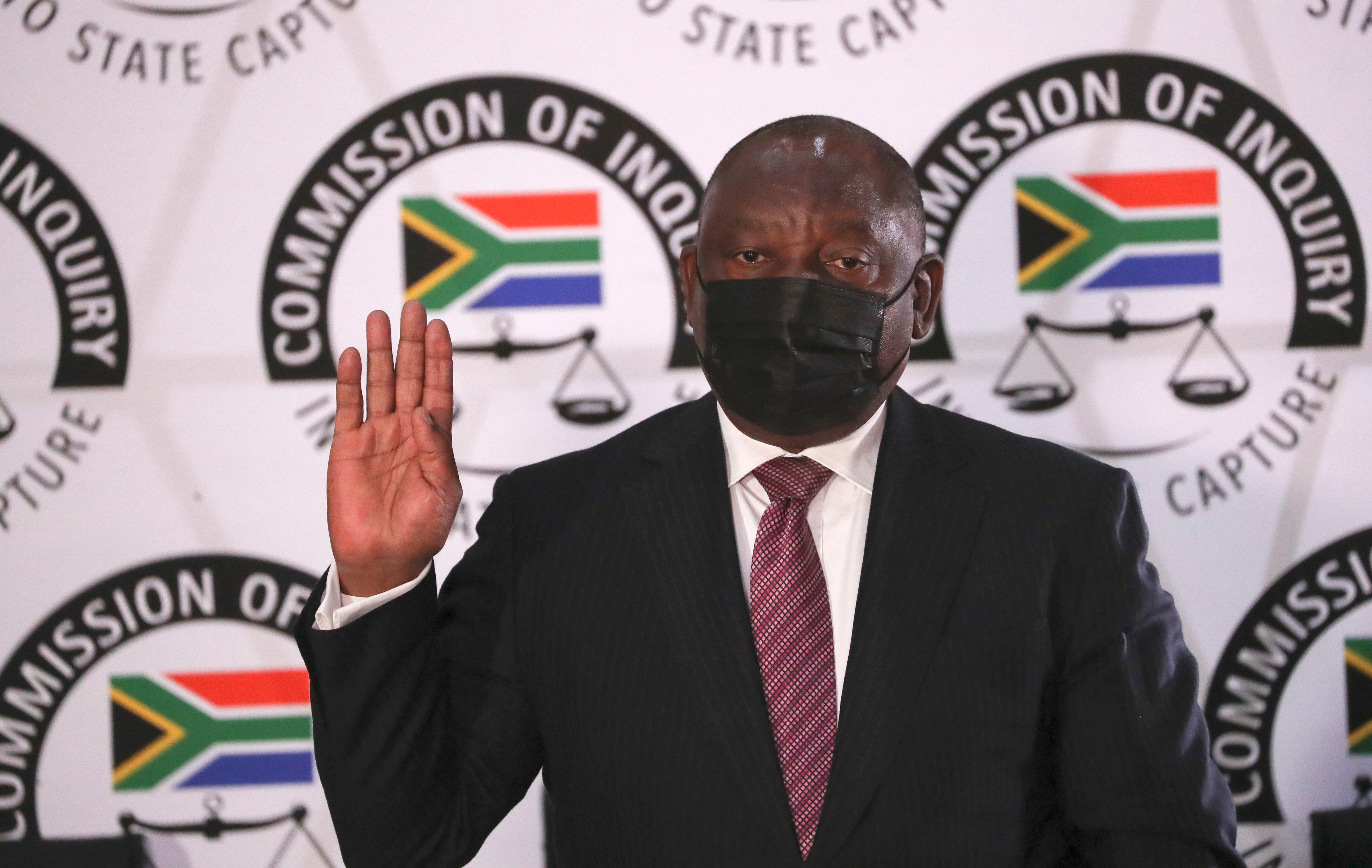South African president testifies at inquiry into corruption
South African President Cyril Ramaphosa on Wednesday said he tried to combat corruption he saw as the country’s deputy president during former President Jacob Zuma’s controversial time in power

Your support helps us to tell the story
From reproductive rights to climate change to Big Tech, The Independent is on the ground when the story is developing. Whether it's investigating the financials of Elon Musk's pro-Trump PAC or producing our latest documentary, 'The A Word', which shines a light on the American women fighting for reproductive rights, we know how important it is to parse out the facts from the messaging.
At such a critical moment in US history, we need reporters on the ground. Your donation allows us to keep sending journalists to speak to both sides of the story.
The Independent is trusted by Americans across the entire political spectrum. And unlike many other quality news outlets, we choose not to lock Americans out of our reporting and analysis with paywalls. We believe quality journalism should be available to everyone, paid for by those who can afford it.
Your support makes all the difference.South African President Cyril Ramaphosa on Wednesday said he tried to combat corruption he saw as the country's deputy president during former President Jacob Zuma’s controversial time in power.
Ramaphosa, testifying at a judicial investigation into corruption during Zuma's term as president from 2009 to 2018, said he considered resigning but decided to fight from within the wrongdoing he witnessed.
“While I would have earned praise from many quarters (by resigning), this action would have significantly impaired my ability to contribute, to bring about an end to state capture (the term in South Africa for corruption of the state)," said Ramaphosa.
He said that his protest resignation “would have caught the big headlines, but that would have been the end of it.”
Ramaphosa said that instead he chose “to remain in my position as deputy president — not to resign, not acquiesce and not to be confrontational — but to work with others in the executive to resist abuses and bring about change where we could and to sustain the work of social and economic transformation.”
By staying on as deputy president, Ramaphosa said he was able to press Zuma to reverse his appointment of a finance minister widely viewed as unqualified. When Zuma named Des van Rooyen as finance minister in December 2015 the Johannesburg Stock Exchange and the value of the rand promptly plummeted. Ramaphosa said he and others immediate pressured Zuma who appointed a new, more respected finance minister within a few days.
The revelations of corruption in Zuma's administration brought the ruling African National Congress to remove him as the party's chief in 2017 and then he was forced to step down as South Africa's president in 2018.
Ramaphosa, who was appointed Zuma's deputy president in 2014, said he had learned the extent of corruption in Zuma's administration through media reports and a report by the public watchdog.
Zuma is currently serving a 15-month jail sentence for defying a court order to appear before the same commission that Ramaphosa spoke to Wednesday. Ramaphosa’s testimony continues on Thursday.
Zuma’s imprisonment last month sparked widespread riots and looting in KwaZulu-Natal and Gauteng provinces which led to the death of over 300 people and damages estimated at over R20 billion (more than $1.36 billion).
Zuma’s separate corruption trial was postponed to September after the former president was admitted to hospital last week.
In a separate legal process, the ANC's suspended secretary-general Ace Magashule appeared in the Bloemfontein High Court on corruption charges related to a state contract when he was premier of the Free State province. The case has been postponed to 19 October.